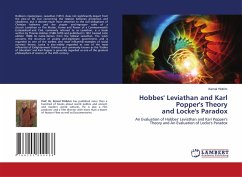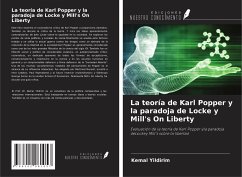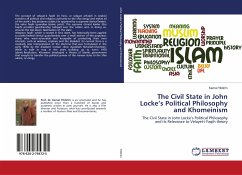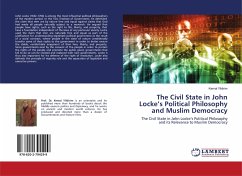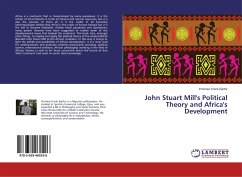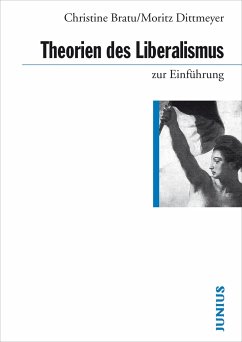
Karl Popper's Theory and Locke's Paradox and Mill's on Liberty
Evaluation of Karl Popper's Theory and Locke's Paradox and Mill's on Liberty
Versandkostenfrei!
Versandfertig in 6-10 Tagen
27,99 €
inkl. MwSt.

PAYBACK Punkte
14 °P sammeln!
This book looks at Karl Popper's critical rationalism and provides examples. Criticism of the theory is also discussed. And it looks at John Locke's apparently contradictory ideas about equality in society. Locke's political and social views are explored. Finally, it analyzes this famous work and uses the current drug war as an example of the reduction of freedom in society. Karl Popper is generally regarded as one of the greatest philosophers of science of the 20th century. He was also a social and political philosopher of considerable stature, a self-professed critical-rationalist, a dedicat...
This book looks at Karl Popper's critical rationalism and provides examples. Criticism of the theory is also discussed. And it looks at John Locke's apparently contradictory ideas about equality in society. Locke's political and social views are explored. Finally, it analyzes this famous work and uses the current drug war as an example of the reduction of freedom in society. Karl Popper is generally regarded as one of the greatest philosophers of science of the 20th century. He was also a social and political philosopher of considerable stature, a self-professed critical-rationalist, a dedicated opponent of all forms of skepticism, conventionalism, and relativism in science and in human affairs generally and a committed advocate and staunch defender of the 'Open Society'. One of the many remarkable features of Popper's thought is the scope of his intellectual influence: he was lauded by Bertrand Russell, taught Imre Lakatos, Paul Feyerabend and the future billionaire investor andphilanthropist George Soros at the London School of Economics. Finally Mill's on Liberty. A Critical Guide is discussed.



